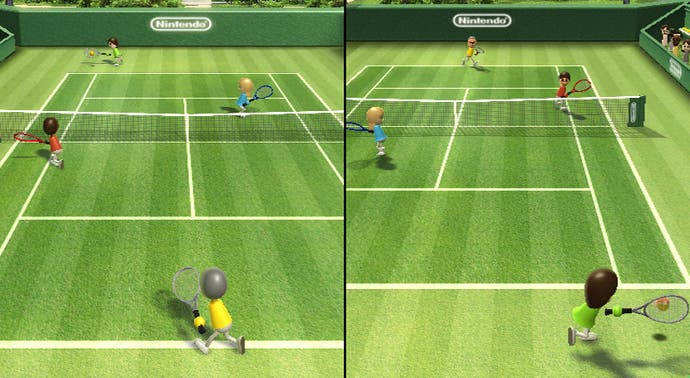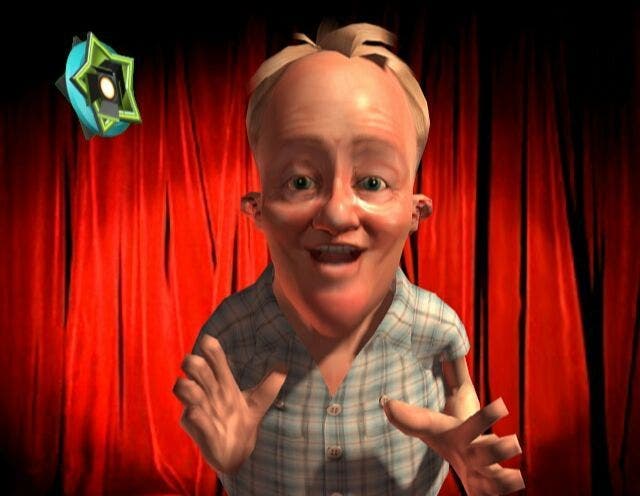The Casuals Are Coming!
Leave those kids alone.
And everyone did it. The first games consoles found their way under the bulky TVs of ordinary families everywhere, and bleeped and burped the soundtrack to millions of Christmas mornings. It was a fad, claimed the Luddite naysayers. A gimmick. A little toy that people would soon tire of. Hey, that argument sounds familiar! Yet here we are, a quarter century later, only now gamers themselves are using the exact same baseless argument, trying to hold back the ebb and flow of the casual tide like King Canute clutching a joypad.
Throughout the 80s and into the 90s, gaming remained a fun hobby, largely free of joyless demands to be "hardcore". Spectrums, Commodores, Master Systems, Megadrives, Super Nintendos and GameBoys. All found a place to snuggle in the mainstream bosom, and nobody batted an eyelid. While the limits of technology certainly played a part, games were accessible - not simplistic - with developers able to focus their attention on well-defined gameplay goals rather than trying to be all things to all people. The result was games that kickstarted entire genres, captured the popular imagination and achieved levels of recognition that still endure to this day. Indeed, there was a time when gamers would rejoice at these moments of ubiquity for their hobby, bringing as it did some much-needed validation against those who had declared gaming a passing fancy, a folly of the early electronic age. It's hard to sniff snootily at gaming when you're addicted to Tetris, after all.

Viewed in this perspective, it's hard to be surprised at the success of the Wii, since it falls squarely into a pattern of gaming that has been with us since the beginning. It's notable that Nintendo's two biggest stumbles came with the N64 and GameCube, as it tried and failed to adapt its business model to compete with the hipper-than-thou PlayStation brand. With the Wii, Nintendo shrewdly ducked out of the escalating hardware war and went back to the basics of gaming that served it so well in the past - a family-friendly box of fun that even your mum can have a go on when she's had too much red wine. Criticising this egalitarian approach as being bad for gaming seems misguided at best, bitter paranoia at worst; more an act of tiresome snobbery than self-defence. It's really just another variation on the old "I liked this band before they were famous" line, except the band is now videogames and the lead singer is your dad playing Wii Sports.
Personally, I'm thrilled to see that the core values of immediacy, playability and accessibility are all making a comeback alongside the development of more ambitious games. If history teaches us anything, it's that casual gaming is good for gaming in general. Where would gaming be without Pac-Man? Or Tetris? Without The Sims there would be no Spore. There'd be no Guitar Hero. Casual games can also be smaller in scope and therefore easier to produce and sell. People are more likely to impulse-buy a cheap game that looks fun than splash out forty quid on some unknown quantity, which means small developers - or even lone coders such as Audiosurf's Dylan Fitterer - can once again reach customers and even make a profit, just like the good old days. There will always be shovelware and cheap crap, but it's in this sort of lower-risk environment that the solitary geniuses of gaming's past were able to make their mark, and it's here that I'm certain we'll see the next generation of visionaries emerge.

Casual gaming is just gaming. It's that simple. It was here at the beginning, and it will be a vital element of gaming in the future. There's no big conspiracy. No invasion. No impending apocalypse that will change our hobby forever. Publishers are not going to stop producing first-person shooters and epic RPGs to fund development of nothing but colourful shape-matching puzzle games. All that's happened is that those terribly scary hordes of normal people out there on the high street have been reminded that games can be accessible and sociable and fun. They'll maybe go on to buy more consoles, and they'll buy more games. A lot of the time, they won't buy the best games, but it's important to remember that the dross - those 3/10 games that Ellie loves to review - fail because they're bad games, not because they're casual games.
So how about we celebrate the diversity of gaming, rather than grumbling about dirty outsiders gate-crashing "our" party, eh? Maybe stop using "casual" as an insult, and appreciate that playing games for enjoyment is hardly the greatest sin in the world. After all, you were casual once as well.
